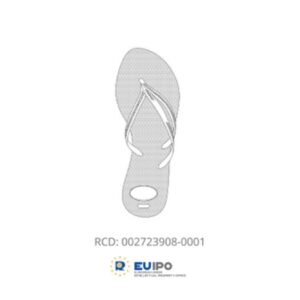
If you’re an Australian business looking to expand your brand to the UK, registering a UK trademark from Australia is a crucial step. This guide will walk you through the process, from conducting a trademark search to filing your application. Read on to learn about Registering a UK trademark from Australia.
Why Register a UK Trademark from Australia?
Expanding your brand internationally is an exciting venture. However, it’s essential to remember that each country is a separate territory when it comes to trademark protection. This means that to protect your brand in the UK, you need to register your trademark there, even if you already have it registered in Australia.
The good news is, the Trademarkroom is here to assist you. We can help you navigate the complexities of international trademark registration, ensuring your brand is protected wherever you choose to do business.
The Importance of a Trademark Search
Before filing a trademark application, the first recommended step is to carry out a trademark search. This search is crucial as it analyses your trademark’s likelihood of success and explores the current trademarks on the databases. It aims to determine whether your application could face any challenges during the registration process.
A trademark search is ultimately a risk report. It denotes whether your mark is devoid of distinctive character or deemed as descriptive of the goods and services. These are factors that the trademark examiner would take into consideration when analysing your mark.
The International Trademark Registration Process
There is no such application to cover the world in one trademark application. Therefore, to protect your trademark, you will need to file an application in each country individually or take advantage of the World Intellectual Property Organisation (WIPO) Madrid application system.
The WIPO Madrid application system allows you to file in up to 122 countries with one fixed fee. An important feature to note about filing through the Madrid application system is that you must have a UK or EU mark on which to base your international application. This existing registration will be the basis of your international application and therefore the details must be the same.
If you do not have this in place already, we can assist you in filing this before moving on to the international application. With respect to costs, there is a basic fee for the Madrid application. In addition to this, you will be required to pay official filing fees for each country you wish to protect your mark in, and how many classes of goods and services will be covered by your registration.
Understanding the Costs Involved
When it comes to registering a trademark, it’s important to understand the costs involved. For the Madrid application, there is a basic fee. In addition to this, you will be required to pay official filing fees for each country you wish to protect your mark in, and how many classes of goods and services will be covered by your registration.
For instance, if you’re looking to register your trademark in Australia, our legal fees are £700 (excluding VAT). These costs can vary depending on the countries you wish to file in and how many countries you wish to file in as we do offer a multiple filing discount.

The Role of Legal Assistance in Trademark Registration
While it’s possible to navigate the trademark registration process on your own, having legal assistance can make the process smoother and more efficient. At the Trademarkroom, we have many contacts with different agents around the world to get you the best fees for filing in international countries.
If you have any specific countries in mind, please do not hesitate to contact us and we can find you the best price for filing and obtaining a trade mark.
The Risk of Not Conducting a Trademark Search
If a trademark search is not carried out prior to filing an application, you or your business could be entering the application process without adequate information, which could lead to costly repercussions and a failed application.
For instance, one of the common challenges that individuals and businesses face when filing for a trademark application is finding out that a highly similar or identical trademark already exists. The owner of these highly similar and identical marks could approach the trademark applicant asking them to withdraw their application or proceed with filing an opposition. If the opposition is successful, it will block your trademark application from registration and prevent you from using that mark in the future.
Therefore, it is strongly recommended to obtain a trademark search as it provides you with potentially invaluable information which your application could depend upon, giving you the best chance for success.
Managing Your Trademark Post-Registration
Once your trademark is registered, it’s essential to manage it effectively to maintain its protection. This includes monitoring for potential infringements, renewing your registration as required, and expanding your portfolio’s geographical scope if necessary.
At the Trademarkroom, we can assist you with all aspects of post-registration trademark management. Whether you need to modify your registration, renew it, or expand your portfolio’s geographical scope, we’re here to help.

Potential Challenges in the Trademark Registration Process
When it comes to registering a UK trademark from Australia, the trademark registration process can present several challenges. These can range from objections based on the lack of distinctive character or descriptiveness of your mark to oppositions from owners of similar or identical marks.
However, with a comprehensive trademark search and the right legal assistance, you can navigate these challenges effectively. Remember, a trademark search is not just a formality – it’s a crucial step that provides potentially invaluable information that your application could depend upon.
Conclusion
Registering a UK trademark from Australia may seem like a daunting process, but with the right guidance and assistance, it can be a smooth and successful venture. From conducting a thorough trademark search to understanding the costs involved and managing your trademark post-registration, each step is crucial in protecting your brand as you expand internationally.
At the Trademarkroom, we’re committed to helping businesses like yours navigate the complexities of international trademark registration. So whether you’re just starting on your international expansion journey or looking to strengthen your existing trademark portfolio, we’re here to assist you every step of the way.
FAQ
Why should I register my trademark in the UK if I’m based in Australia?
Registering your trademark in the UK is crucial if you’re an Australian business looking to expand your brand to the UK. Each country is a separate territory for trademark protection, so a trademark registered in Australia doesn’t automatically grant you protection in the UK.
What is the importance of a trademark search?
A trademark search analyses your trademark’s likelihood of success and explores the current trademarks on the databases. It’s a risk report that can highlight potential challenges your application might face during the registration process.
What is the WIPO Madrid application system?
The WIPO Madrid application system allows you to file a trademark application in up to 122 countries with one fixed fee. However, you must have a UK or EU mark on which to base your international application.
What are the costs involved in registering a trademark?
The costs can vary depending on the countries you wish to file in and how many classes of goods and services will be covered by your registration. For instance, the legal fees for registering a trademark in Australia are £700 (excluding VAT).
What challenges might I face during the trademark registration process?
Challenges can range from objections based on the lack of distinctive character or descriptiveness of your mark to oppositions from owners of similar or identical marks. A comprehensive trademark search can help navigate these challenges effectively.
Written by Ellis Sweetenham – Senior Intellectual Property Law Consultant
After achieving a First Class LLB Law degree from Southampton Solent University in 2016, Ellis went on to complete an LPC LLM in Legal Practice in 2017 at the University of Law. Following her training, Ellis was admitted to the role as a Solicitor in February 2019.











